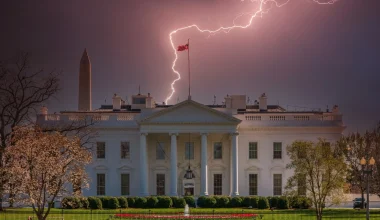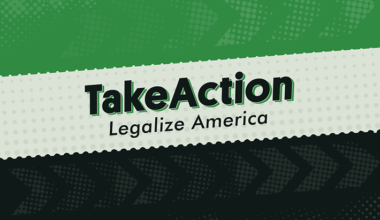(This is a contributed guest column. To be considered as an MJBizDaily guest columnist, please submit your request here.)

For cannabis business owners, advertising their products presents unique challenges.
For one, regulatory restrictions can act as state-sanctioned censorship, preventing businesses from exercising their free-speech rights and limiting their ability to reach existing and potential customers with reliable product information.
In many states where marijuana has been legalized, state regulators restrict advertising based on perceived risks to public health.
This includes concerns that the public might be misinformed, misled or deceived.
To address these risks, regulators impose limits on content, including words, phrases and images.
For example, they may require that any claims are substantiated, including those made by third parties through testimonials or endorsements.
There is also a concern about the impact of advertising on vulnerable members of the public, which can lead to restrictions such as prohibitions on images that are appealing to children.
Additionally, restrictions can be placed on the time, place and manner of advertisements, such as prohibiting advertising in places where it might be seen by children.
Regulators also may require that advertisements include certain information, such as warnings that alert the public to the health effects of consuming cannabis.
Commercial versus noncommercial speech
Cannabis business owners should be aware of the distinction between commercial and noncommercial speech, as it impacts advertising.
Noncommercial speech, which expresses opinions, beliefs or ideas (such as a marijuana business’ stance on legalization), enjoys greater protection under both federal and state constitutions.
Regulators can restrict such speech only in limited circumstances.
Businesses generally can incorporate noncommercial speech into their advertisements.
Commercial speech that promotes a product or service, meanwhile, is subject to stricter regulation.
Regulators have broader authority to restrict or even ban commercial speech.
Consequently, businesses must exercise caution when including commercial speech in advertisements and should consider seeking professional advice – including legal counsel – to ensure compliance.
Balancing compliance and free speech
State regulators face challenges in monitoring and enforcing marijuana advertising restrictions.
These challenges stem partly from businesses’ First Amendment rights to free speech under the U.S. Constitution and similar provisions under state constitutions.
In markets where marijuana is regulated, businesses might be able to cite additional protections under their respective state constitutions.
Additionally, state agencies might lack the experience, expertise and resources to effectively monitor licensees and enforce their compliance with advertising restrictions.
State regulators often struggle with monitoring the advertising activities of all cannabis businesses.
The diverse media landscape – television, radio, print and, especially, the internet and social media – presents a considerable monitoring challenge.
In these types of scenarios, regulators will need to hire and train internal experts or engage outside experts capable of reviewing advertisements and rendering opinions.
How regulators monitor and enforce compliance
Despite these challenges, state regulators have authority to take enforcement actions against specific marijuana business licensees.
These actions can include cease-and-desist orders requiring businesses to halt or retract advertisements.
Regulators also may suspend or revoke licenses, deny license renewals and impose administrative penalties such as fines or other monetary sanctions.
Beyond punitive measures, regulators prioritize addressing and mitigating harm to the public.
They may mandate corrective statements retracting previous advertisements and require disclaimers or warnings in future advertising.
Additionally, regulators can refer cases to other state agencies for further action.
Unlawful cannabis advertising also may draw scrutiny from federal agencies.
Despite state-level legalization, marijuana remains classified as a Schedule 1 drug under the Controlled Substances Act, which prohibits advertising of such substances.
This federal prohibition means marijuana advertising – even within state-regulated markets – could be subject to federal oversight.
Two key agencies oversee advertising in this area: the Federal Trade Commission and the U.S. Food and Drug Administration.
The FTC regulates advertising for a range of consumer products, including foods, over-the-counter drugs, dietary supplements, medical devices and cosmetics.
The FDA regulates the labeling of these products and also has primary oversight of prescription drug advertising and labeling.
Both agencies have, in the past, shown a willingness to call out businesses making unsubstantiated therapeutic claims about cannabis products.
Subscribe to the MJBiz Factbook
Exclusive industry data and analysis to help you make informed business decisions and avoid costly missteps. All the facts, none of the hype.
What you will get:
- Monthly and quarterly updates, with new data & insights
- Financial forecasts + capital investment trends
- State-by-state guide to regulations, taxes & market opportunities
- Annual survey of cannabis businesses
- Consumer insights
- And more!
Courts weigh constitutionality of marijuana ad bans
Marijuana businesses looking to overcome state advertising limitations should determine if they have constitutional grounds for a challenge.
Courts nationwide are currently examining whether free speech guarantees in federal and state constitutions apply to cannabis advertising.
In the case of Clarence Cocroft II against the state of Mississippi, a federal appeals court decided that Cocroft, owner of Tru Source Medical Cannabis in Olive Branch, was not entitled to any protection under the First Amendment of the U.S. Constitution.
Dissatisfied with that decision, Cocroft recently filed a petition asking the U.S. Supreme Court to decide whether the First Amendment protects a cannabis business owner from unwarranted advertising restrictions.
For Cocroft, the answer to that question has “real-life implications” in states such as Mississippi that “have at once legalized the sale of medical marijuana and prohibited any speech promoting it.”
Should the U.S. Supreme Court take the case and rule in Cocroft’s favor, the federal courts would arguably be more receptive to these type of free-speech challenges.
According to the Institute for Justice, which represents Cocroft: “Victory in this case will reaffirm that the First Amendment prevents the state from censoring people who want to speak about legal products and services and ensure entrepreneurs like (Cocroft) can promote their legal businesses.”
In the case of Seattle Events and Universal Holdings versus Washington and the state’s Liquor and Cannabis Board, an appeals court determined that regulators had a compelling interest in protecting children’s health and regulations against marijuana advertising that were enacted to serve that interest.
One example where a marijuana business succeeded in challenging advertising restrictions is Plausible Products d/b/a Hashtag Cannabis v. Washington State Liquor and Cannabis Board.
In that case, the trial court considered whether the state regulator violated the business’ state constitutional rights through regulations imposing restrictions on on-site advertisements.
At issue was a retailer’s window display: Holiday lights in the window spelling out the word “pot” could be viewed from the outside.
The court found that the advertising regulations were too restrictive “where (underage) consumers are not allowed to enter or make purchases.”
The court also determined that the regulations were inconsistent since there were fewer restrictions on billboards, which “would seem more effective at capturing the attention of potential underage consumers.”
From First Amendment considerations to the intricacies of commercial speech, cannabis advertising presents a unique set of legal challenges.
As federal and state regulators and courts continue to grapple with the constitutionality of cannabis advertising restrictions, the legal framework surrounding this industry remains dynamic.
For cannabis businesses, a strategy that balances marketing goals with regulatory realities and considers bringing legal challenges will be crucial for sustainable growth and market expansion in this evolving environment.
Christine Baily provides personalized legal advice to businesses and individuals at Massachusetts-based C Baily Law, where she helps clients navigate the complex legal requirements and risks of operating in state-regulated markets. She can be reached at christine@cbailylaw.com.
(Disclaimer: This story is for informational purposes only and does not constitute legal advice. The information provided is not intended to replace professional legal counsel. Please consult with an attorney to discuss your specific legal needs and circumstances.)
Medical Disclaimer:
The information provided in these blog posts is intended for general informational and educational purposes only. It is not a substitute for professional medical advice, diagnosis, or treatment. Always seek the advice of your physician or other qualified healthcare provider with any questions you may have regarding a medical condition. The use of any information provided in these blog posts is solely at your own risk. The authors and the website do not recommend or endorse any specific products, treatments, or procedures mentioned. Reliance on any information in these blog posts is solely at your own discretion.






